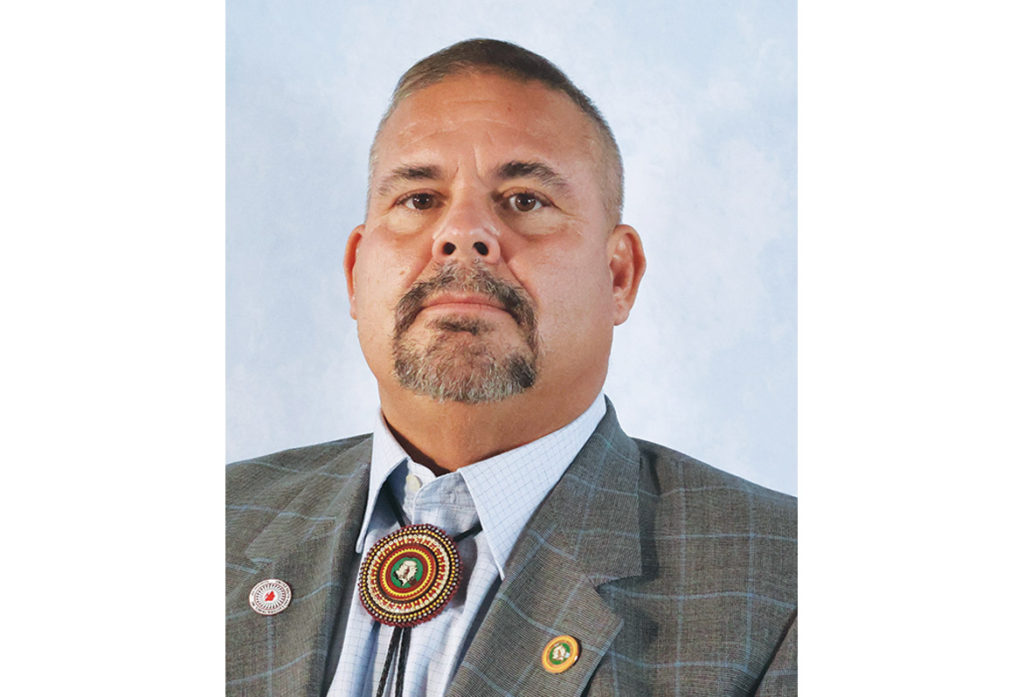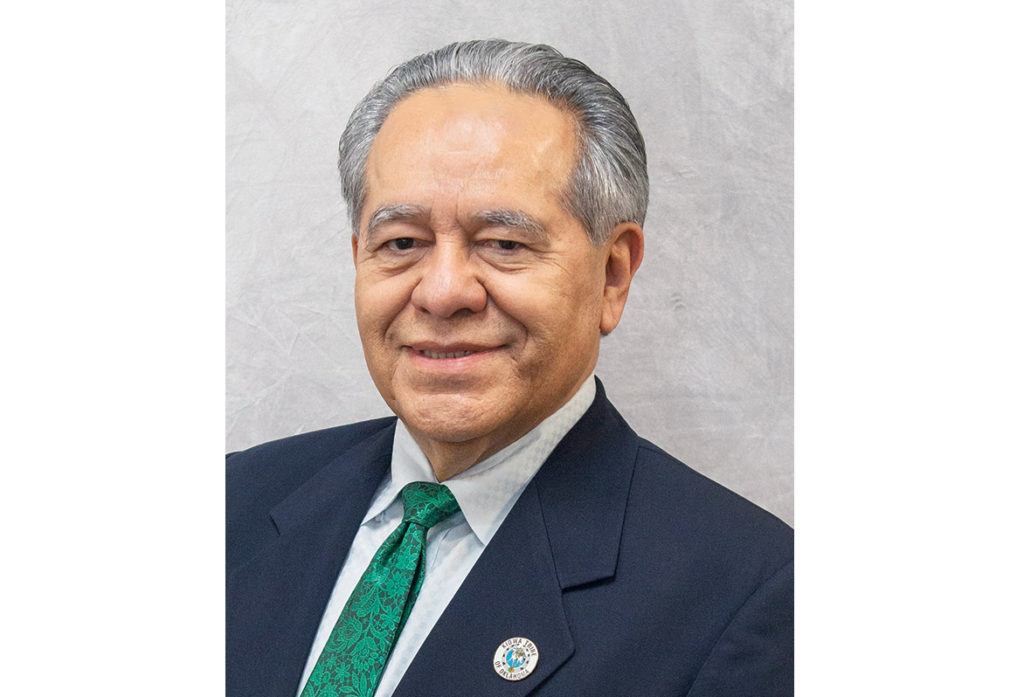Three tribal leaders share how gaming revenues have benefited their tribe and community; goals and initiatives; and legislative/political issues of concern. Here is what they had to say…
Brian Harris, Chief
Catawba Indian Nation
Catawba Two Kings Casino – Kings Mountain, NC
twokingscasino.com / catawba.com

BENEFITS OF GAMING: The revenues generated from our casinos have contributed to the economic development and self-sustainability of Catawba, as well as the surrounding communities. We have created job opportunities for both tribal members and local community members. We have various roles such as dealers, administrative staff, hospitality workers, and security personnel, to name a few. Catawba gaming has also generated revenues that are often reinvested into the tribe’s infrastructure and economy, which has led to the development of new businesses, improved healthcare facilities, educational programs and other initiatives that enhance the quality of life.
Catawba gaming revenues are also allocated to support educational programs and healthcare services. The funds can be used to enhance schools, scholarships, vocational training, and medical facilities – ultimately benefiting the tribe and the surrounding community. Cultural preservation is also something that benefits from the revenues, as it allows us to preserve and promote our cultural heritage. Funds are used for cultural events, language preservation programs, museums, historical sites, and other initiatives to help maintain and revitalize Catawba culture and traditions.
GOALS & INITIATIVES: We have several initiatives for our tribe, such as economic development, educational and scholarship programs, infrastructure development, cultural preservation and support, social services, environmental conservation, and charitable contributions. Our goal is to generate revenue through gaming enterprises to support tribal growth, create job opportunities, and improve the overall economic well-being of tribal communities. We also plan to support and create educational initiatives, scholarships, and vocational training programs for tribal members. We want to support and expand our social services, which include healthcare programs, elder care, mental health services and substance abuse treatment.
To reach these goals, we realize infrastructure is a huge part of that, which means we plan to invest in road improvements, healthcare facilities, schools, and housing by using gaming revenue. We also want to be good stewards of our environment by allocating funds toward protecting and preserving the natural resources and environment within tribal lands.
And finally, our other goal is to support local non-profit organizations and provide support to neighboring communities through philanthropic activities.
LEGISLATIVE: Of course, there are always legislative issues that will affect our tribe, and we are committed to working within the process to protect the stability of our tribe for generations to come. I am concentrating on protecting the investment we have made in the State of North Carolina and continuing to provide good-paying jobs and financial independence for our tribal members and North Carolinians alike. I believe in building relationships and communicating with elected officials so that they may understand the unique experiences and needs of our people.
Brenda Meade, Chair
Coquille Indian Tribe
The Mill Casino Hotel & RV Park – North Bend, OR
themillcasino.com / coquilletribe.org

BENEFITS OF GAMING: Gaming revenue allows us to provide critical support to our citizens and their families, as well as our neighbors and communities throughout our five-county service area. Under our constitution, we are not a per-capita tribe – 100 percent of gaming income is allocated directly to services such as elder care, education, health and public safety. We have a small tax base, and our membership and their needs are growing, so these revenues are crucial for ensuring the well-being of our tribe and the continued future of our culture, language and heritage. Gaming funds, as well as our casino operations in general, also generate hundreds of jobs, and expand opportunities for other local businesses and the economy across the state.
This year, we were able to award $500,000 in grants through our Coquille Indian Tribe Community Fund to a variety of organizations throughout our five-county service area. We take pride in being able to provide not only for our members, but for Southern Oregon as a whole.
GOALS & INITIATIVES: As with many tribes, our story is one of seeking to overcome the tremendous harm inflicted on our people by centuries of removal and relocation. As a small tribe, exercising our sovereignty for economic development purposes is critical. We have unmet needs not covered by our tribal budget – such as housing, school construction, and infrastructure – that are critical to realize our congressionally-established goal of tribal self-sufficiency.
To meet these needs, we are working to open a new on-reservation gaming facility, The Cedars at Bear Creek in Medford, that will allow us to expand on the existing services we already provide in the city and in Jackson County. In addition to these critical services, The Cedars at Bear Creek is expected to create approximately 233 full-time jobs, with payroll and benefit costs estimated at $9.65 million per year. These new jobs will be filled by both Coquille citizens, members of other tribes, as well as non-tribal community members.
LEGISLATIVE: We are still awaiting approval on our fee-to-trust application that has been pending since 2012 with the Department of the Interior. For over a decade, we have been fighting bureaucracy and questionable political tactics just to do what is best for our people and exercise our rights under our Restoration Act by legally building on this land taken into trust. The Coquille Restoration Act specifically includes Jackson County, home to Medford, as part of our fee-to-trust area. Unfortunately, political matters have derailed what should be a simple process of a tribe following a clear Congressional mandate, and we are still waiting for the final NEPA (National Environmental Policy Act) decision needed to move forward.
We remain hopeful that the Biden administration recognizes its obligation to follow the law and respect tribal sovereignty, and will issue a final decision on our application so we can meet the growing needs of our citizens and serve our communities.
Lawrence SpottedBird, Chairman
Kiowa Tribe
Kiowa Casino Red River – Devol, OK; Kiowa Casino Carnegie – Carnegie, OK; Kiowa Casino Hobart – Hobart, OK (coming fall 2024)
kiowacasino.com / kiowatribe.org

BENEFITS OF GAMING: The Kiowa Tribe has a history of poor management that didn’t develop any new revenue-generating enterprises other than our casinos. We currently have two casinos with a third currently under construction. Therefore, gaming is our only source of discretionary funding for which we can support our tribal operations.
If not for the American Rescue Plan Act funding that was allocated to us and all tribes, we would be very limited on the services we can provide to our tribal citizens in need.
Going back to the early 1980s when we tribes in Oklahoma first developed high stakes bingo operations, we learned quickly that generating our own revenues through profits from enterprises empowered our tribe to address our priorities as we determine. With the enactment of the National Indian Gaming Act in 1988, we were then able to explore Las Vegas-style gaming with slots and table games beyond bingo.
It took the Kiowa Tribe a long time to get our first casino opened in 2007, but with that opening, it created a new era for us with more discretionary funding to support our tribal government operations. Now that we have two casinos with a third under construction, we look forward to funding our growth outlined in our new strategic plan. Key to this plan is to diversify our enterprise base and generate revenues through non-gaming businesses located in Southwest Oklahoma.
GOALS & INITIATIVES: The Kiowa Tribe currently has developed a three-part, 10-year strategic plan outlining tribal governance, economic development and workforce development entrepreneurship development. With respect to tribal governance, this includes seeking self-governance status and reorganizing our government structure to be consistent with our new tribal constitution that identifies an Executive Branch with four divisions; a legislative branch consisting of seven legislators; a Judicial Branch consisting of a Trial Court and a Supreme Court; and the Kiowa Indian Council – all voting age citizens of the Kiowa Tribe, 18 years or older.
In terms of economic development, that would encompass developing a federally chartered corporation – Kiowa, Inc. – to serve as the holding company to form all for-profit business enterprises in six business divisions owned by the Kiowa Tribe, including gaming and hospitality development.
Finally, regarding workforce development/entrepreneurship development, that would entail developing a tribal-owned non-profit community development corporation to support the creation of a one-stop services center – Kiowa Tribal Empowerment Center – that will empower our Kiowa tribal citizens to learn how to support themselves through career development or small business development, while removing barriers to success like alcohol and drug abuse, limited or no access to capital, and the lack of education, transportation and housing.
LEGISLATIVE: Currently, the State of Oklahoma has a very anti-tribal governor who is creating an adversarial climate in the state among the 38 federally recognized tribes here. There are also two Supreme Court decisions that create almost opposite decisions regarding tribal sovereignty. The 2020 McGirt ruling was consistent with 200 years of Supreme Court precedent recognizing the right of tribal nations to self-govern without being infringed upon by the states, whereas, the recent Castro-Huerta ruling recognized that state governments have the authority to prosecute certain cases on tribal lands. This indicates a gradual eroding of tribal sovereignty that gives the states more and more authority to negatively impact tribes and our ability to self-govern, especially in tribal unfriendly states like Oklahoma.















































